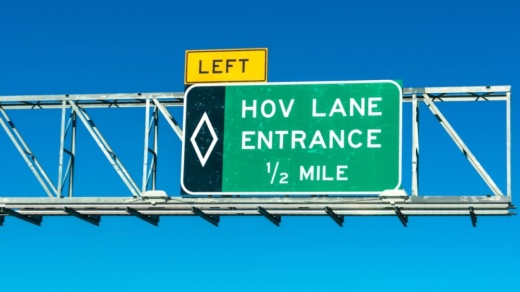A pilot project in the corridor between I-635 and SH 121 will evaluate the effectiveness of allowing solo drivers to use the HOV lane while also providing an incentive to cars with more than one occupant, according to a Sept. 13 news release.
The existing HOV lanes on this stretch of US 75 are “not as useful as they once were,” Dan Lamers, senior program manager at NCTCOG, said during a Sept. 9 board meeting. The council of governments has joined with the Texas Department of Transportation and partners in Collin County to identify innovative ways to use that additional capacity, Lamers said.
“US 75 is a complex corridor,” he said. “There are some safety issues, some congestion issues, some operational issues, so we are looking for a way to improve the situation in its entirety.”
The council of governments has decided to remove barriers segmenting the HOV lanes, which will increase safety and open up the lanes to solo drivers, Lamers said.
Two options have been proposed for single-occupancy vehicles in the HOV lanes. The first would make the lanes free for solo drivers, while the second would impose a nominal toll. Lamers said the council of governments is working with TxDOT and the Federal Highway Administration on implementation, and they hope to have a decision soon.
To continue providing an incentive for carpooling, the council of governments is proposing that high-occupancy vehicles receive a monetary reward for using the lanes, Lamers said.
In order to study the effectiveness of the plan, the council of governments needs to track who is using the lanes, when they are using them, and what their occupancy is. A $10 million grant from the federal government would pay for the use of a GoCarma, a system that could track those metrics.
“We would be able to prove that this technology could keep track of where vehicles are traveling and when they are traveling and then at some point, you could either allocate rewards or user fees to those vehicles, depending on federal or state policies,” Lamers said of the incentive for the federal government.
No money would be collected as part of the pilot project; however, Lamers said the council of governments may end up paying drivers to participate in the process.
Lamers said the pilot project would be rolled out in phases beginning in late 2022 and continuing through 2024. To provide input on the proposal, email [email protected] or call 817-608-2365. The deadline to comment is Oct. 12.





